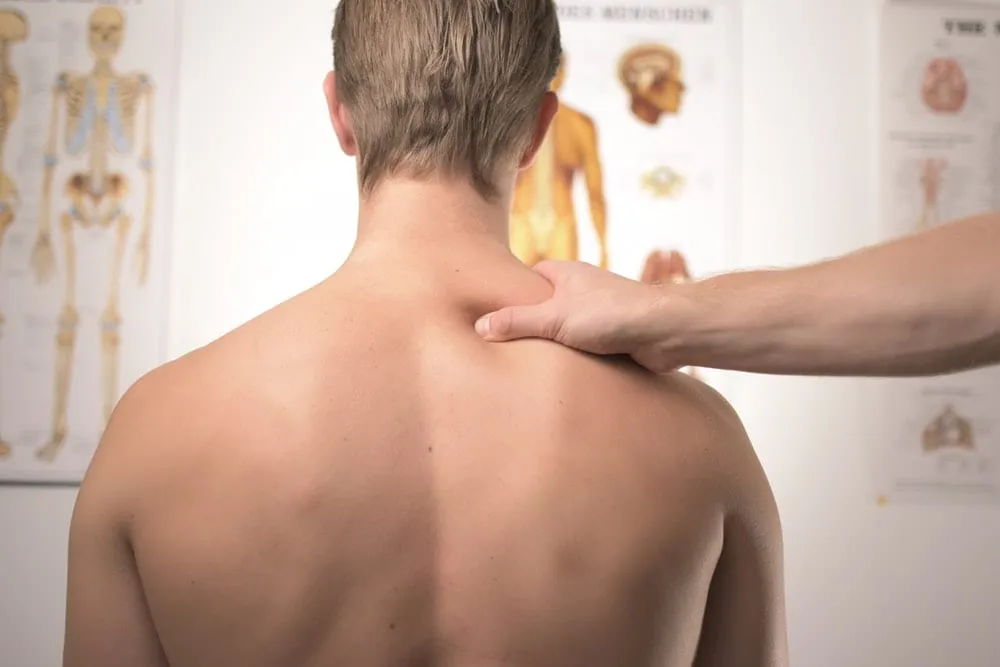These are just a few common causes of chronic pain. Chronic pain originates from a variety of sources and occurs for different reasons, so there is no one treatment that will cure all types of chronic aching, stiffness, soreness, or spasms.
You might be experiencing chronic pain due to:
- Certain types of cancer, such as osteosarcoma
- Fibromyalgia
- Amputations, which often lead to phantom pain, or the sensation of pain from a body part that a patient no longer has
- Spinal injuries
After some time, you’ll be fed up with the consistent aching you’re dealing with – it seems like it won’t ever stop on its own, and it’s no longer a small problem that will go away by itself.
If you’ve reached this point, be aware of going into a doctor’s appointment that you have options.
Discuss these 5 methods with your doctor and get their opinion on which is best for your condition:

- Trigger Point Injections
Trigger points are commonly known as knots of muscle, which are sensitive areas in skeletal muscle. Trigger point injections performed by health care professionals are known to relieve these muscle knots.
A local anesthetic, sometimes accompanied by steroid, is injected into the trigger point. This is most often used to relieve pain associated with tension headaches and fibromyalgia.
- Surgical Implants
The implementation of surgical implants is a more extreme treatment method that is taken when physical therapy and routine medications are not effective.
Surgical implants come in two varieties:
- Intrathecal Drug Delivery: In this method, a pain pump is implanted into a patient’s spinal cord and directly delivers medicines such as muscle relaxants or morphine.
- Spinal Cord Stimulation Implants: In this method, electrical signals are delivered to origins in pain to prevent the brain from receiving pain signals. A surgeon implants a device that delivers these signals into the patient’s body. The device can be controlled by a patient via a remote when intensity adjustments are called for.
- Ketamine Infusion Therapy
With ketamine infusion therapy, patients can experience immediate pain relief. While it was initially recognized for its effectiveness in treating disorders like anxiety and depression, it has been proven to relieve symptoms of chronic pain.
Ketamine infusion therapy is performed by a trained clinician. In this treatment, ketamine is delivered through an IV at a slow and precise rate in order to measure a patient’s reaction and make any necessary adjustments.
As it flows through your body, ketamine stimulates the growth of neurons, which improves your mood and relieves neurological pain. This pain treatment method is performed all without interrupting the functionality of your respiratory and cardiovascular systems, so there are few side effects ever reported.
- Psychological Treatments
If you are looking for a more natural course of treatment, psychological treatments like dynamic psychotherapy, cognitive psychotherapy, and behavioral psychotherapy, do not involve the use of drugs. They can be performed individually or alongside your current physical treatment. Psychological treatments have been known to relieve feelings of sadness, anger, and hopelessness, all of which increase your risk of developing depression and anxiety and worsen the pain you are experiencing.
Psychological treatments will help you learn to live with your chronic pain and educate you on how to manage obstacles you may be unfamiliar with.
- Acupuncture
Acupuncture is an ancient technique and form of alternative medicine that studies have shown to be effective.
With this treatment method, thin needles are inserted into various acupuncture points throughout your body. These acupuncture points often surround nerves. When they are stimulated with acupuncture needles, these nerves activate specific muscles in your body. Activated muscles are able to send messages to the CNS (central nervous system) and cause the release of endorphins, which are chemicals that effectively block pain.
